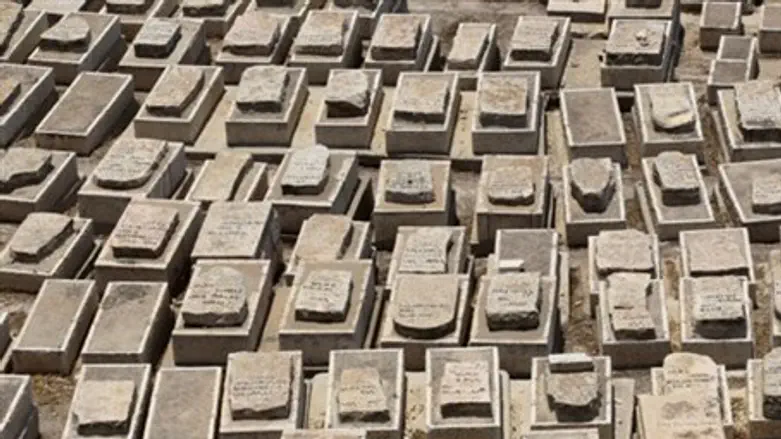
Algeria begins plans to uproot Jewish cemetery
45 years after it was first desecrated, Algerian authorities leading construction project on site of Jewish cemetery in Oran.

A desecrated Jewish cemetery in Algeria has been taken over by authorities who are advancing a construction project on the site.
The demolition of the cemetery in the coastal town of Oran marks the end of Algeria's once-magnificent Jewish community, who first came to settle in the African country in the 14th century and expanded after the expulsion from Spain.
Anti-Semitism began to grow in the 18th century and reached its peak during World War II, when France was defeated by Germany, leaving Algeria under the jurisdiction of the pro-Nazi Vichy government.
After World War II, Jews attempted to remain neutral during the Algerian struggle for independence but found themselves the victims of attacks from both Algerian and French nationalists.
The Jewish community, numbering about 30,000 people, continued its regular life, but in 1956 rioters started attacking Jewish property. Attacks quickly escalated and began to claim casualties.
The security situation gradually deteriorated, worsening considerably in 1960 with the desecration of the Jewish cemetery of Oran.
After the implementation of the Evian Accords, in which Jews were stripped of citizenship and protection under the law, as well as the start of massacres against the European population, Jews began to leave Oran en masse in 1962.
In 1963, a year after Algeria gained independence from France, only 850 Jews remained in Oran. By the end of the decade, that number shrank even further.
In 1975, the Great Synagogue was converted into a mosque and by the early 2000s no Jews were believed to have remained in Oran.